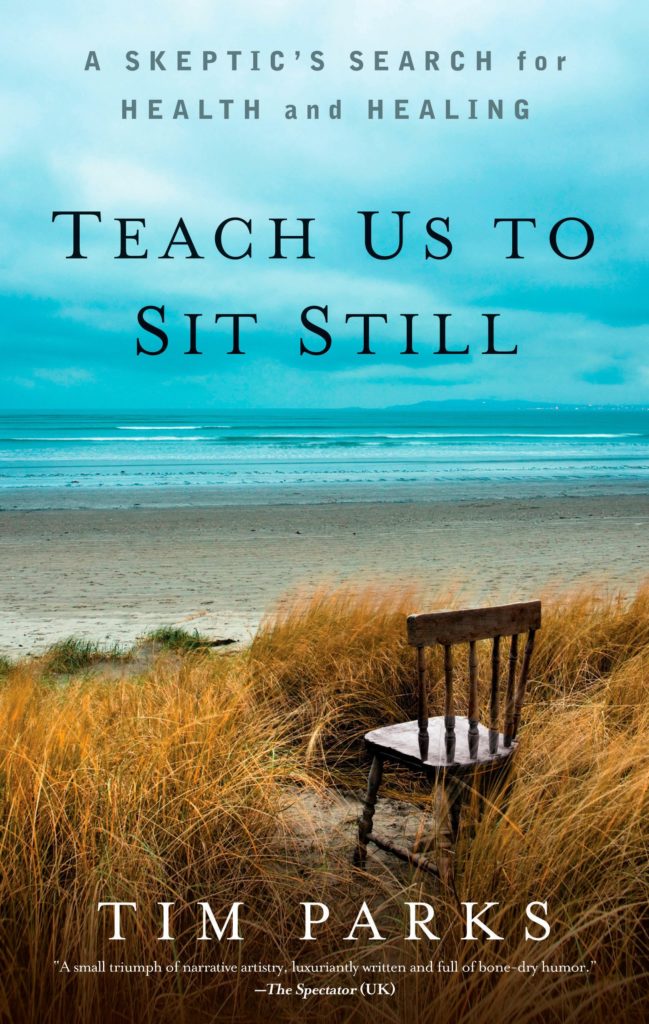It Seemed a Tedious Exercise at First

I had such fun reading Out of My Head by Tim Parks (in which he writes of his fascination with theories of consciousness after learning to meditate, and about which I posted here) that I immediately followed up with another marathon reading of another of his books, Teach Us to Still, which tells how he came to be meditating in the first place.
From the Forward:
“I never expected to write a book about the body. Least of all my body. How indiscreet. But then I never expected to be ill in the mysterious, infuriating way I have…
“I had no desire to tell anyone about my malady, let alone write about it. These were precisely the pains and humiliations one learns early on not to mention. You need only look at the words medicine uses — intestines, feces, urethra, bladder, sphincter, prostate — to appreciate that this vocabulary was never meant to be spoken in company. We just don’t want to go there. My plan, like anyone else’s, was to confide in doctors and pretend it wasn’t happening.
“On the other hand, this is reality, and in my case there was the happy truth that just when the medical profession had given up on me and I on it, just when I seemed to be walled up in a life sentence of chronic pain, someone proposed a bizarre way out: sit still, they said, and breathe.
“I sat still. I breathed.
“It seemed a tedious exercise at first, rather painful, not immediately effective. Eventually it proved so exciting, so transforming, physically and mentally, that I began to think my illness had been a stroke of luck.”
***
The book is quite a read. Especially when it (finally) gets to the part about learning to meditate:
“I felt I knew what he [the meditation teacher] meant when he spoke of everything flowing, mind and material dissolving into energy. Nor was it unthinkable that the strange pains I had been feeling had in some way to do with all those years of sitting tensely, racking my brains over sheets of empty paper, building up hopes, rejoicing over some small achievement, overreacting to setbacks and disappointments.
“And it was true that if you placed yourself, or your attention, as it were beside the pains, if you just sat together with them and let them be, not reacting or wishing them away, they did in the end subside.
“Likewise the thoughts: if you let them bubble up without judging them, or engaging them in any way, they gradually fizzled out. What’s more, you felt that a certain serenity had been acquired in this process, an understanding that much of the pain we feel comes from our reaction to pain, much of our agitation from our excitement with agitation.
“…paradoxically, letting go, you actually gained control, albeit of a different kind from the control you’d spent your life seeking.”
***
Bingo.
